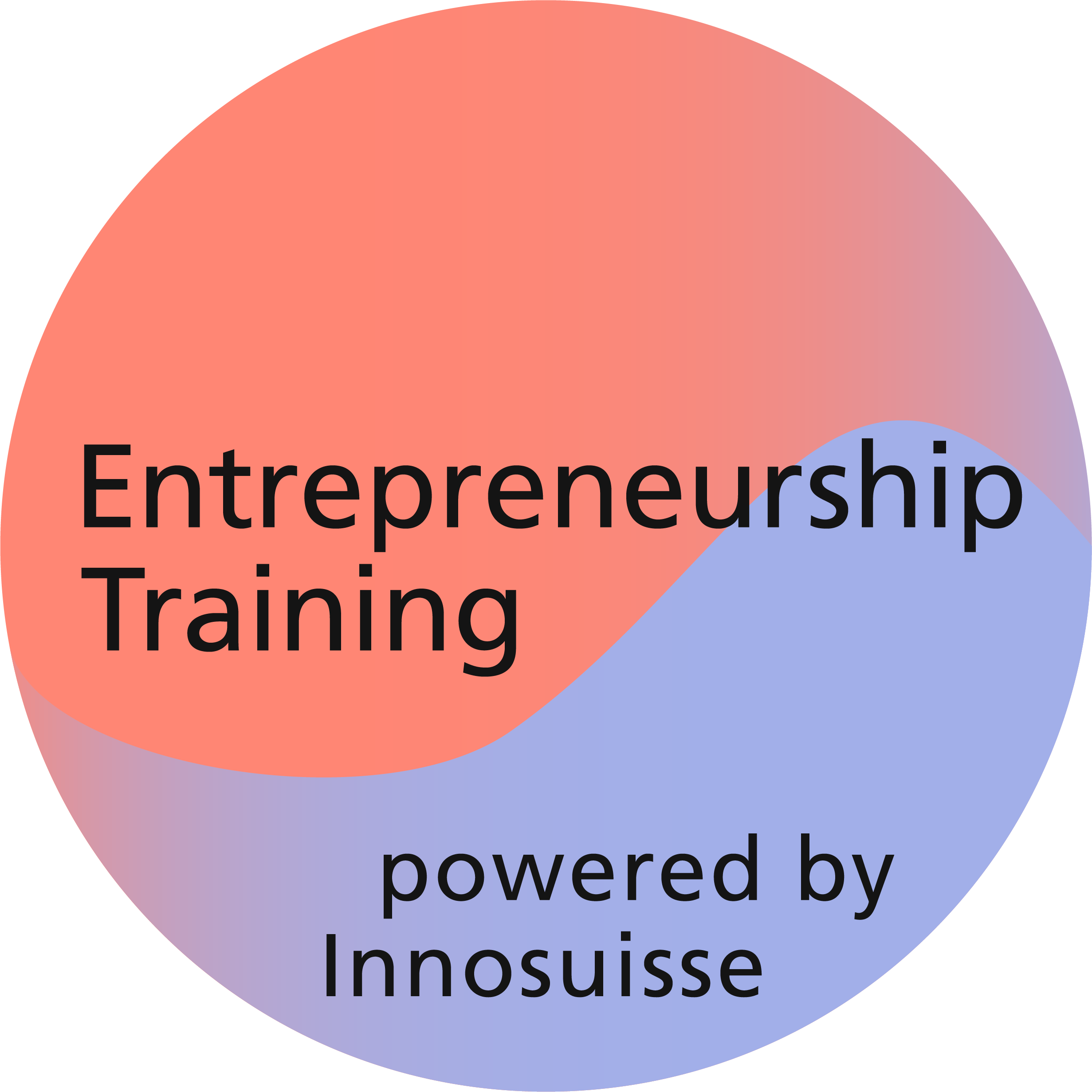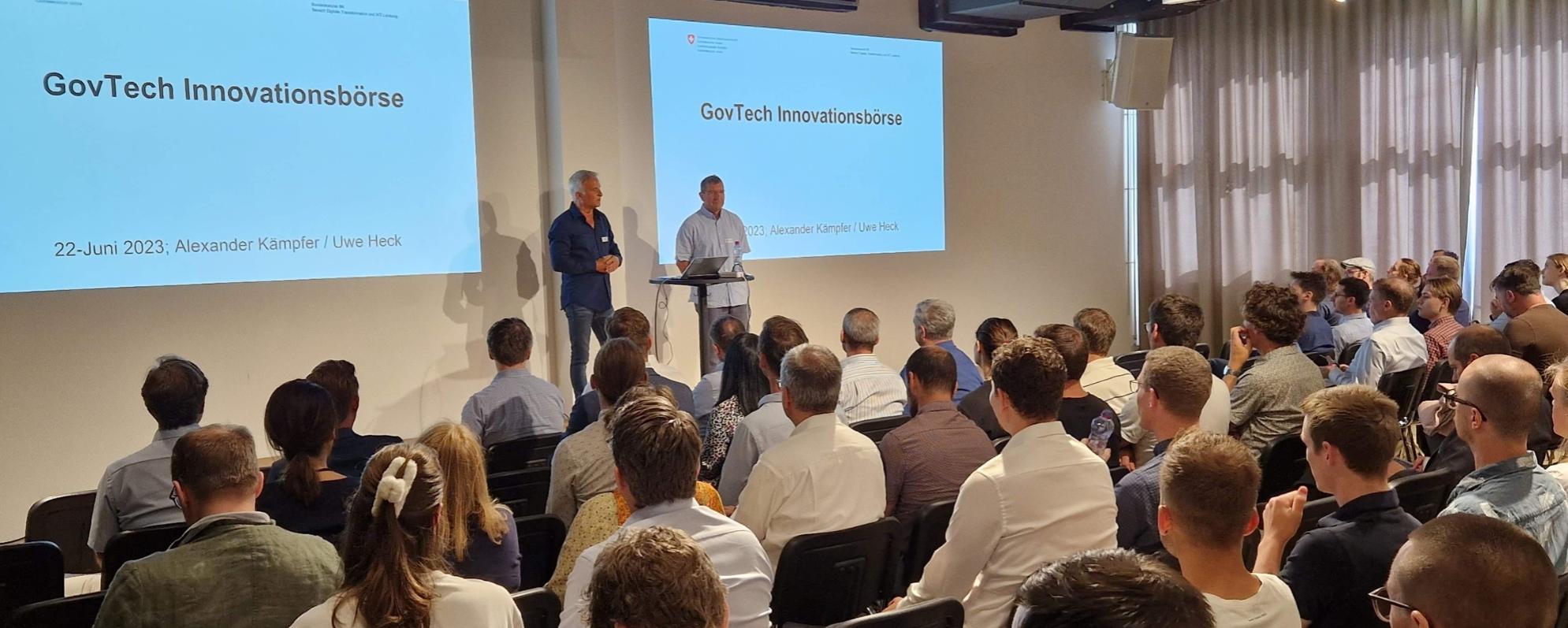The Innosuisse Start-up Training in Business Growth and Business Creation equips entrepreneurs with the tools to build world-class start-ups. Around 30 times a year, the Innosuisse trainers—more than 160 entrepreneurs, investors, and experts—share their expertise and provide hands-on experience in tailor-made workshops for ICT, advanced engineering, medtech, and biotech start-ups. One of these trainers is Nicolas Berg, co-founder of cash.ch, XING (CH), and Redalpine Venture Partners. Since 1984, Nicolas has co-founded over a dozen start-ups, and since 2004, he has coached up to 40 start-up projects per year. Learn more about Nicolas’s training sessions, his expectations of the participants, and his entrepreneurial experience.
The Innosuisse Start-up Training comprises accomplished entrepreneurs, investors, and experts who help young companies accomplish their missions. Many Innosuisse coaches have built start-ups themselves, and all know the challenges and opportunities entrepreneurs face. To learn more about the experts who support the Swiss innovation ecosystem, we ask them to complete a short profile and choose at least eight questions from a questionnaire about their training session and their personal and professional life.About Nicolas
 Name: Nicolas Berg
Name: Nicolas Berg Locations: Solothurn, Gstaad/Bern, Zürich
Born in: 1959 in Switzerland
Graduated from: University of Bern, MSc Ec, 1985
Job titles: Coach, co-founder (12 startups, 1 VC)
Number of employees: About 100 in actual start-up portfolio
Money raised: CHF 60 million for 20+ start-ups and one fund since 1984
First touchpoint with Venturelab: Lead Innosuisse start-up trainer since the beginning in 2004
“I have been coaching or co-funding up to 40 digital, life-science, or impact start-ups annually since 1984.”
About Nicolas’s Innosuisse training
How are you involved in the Innosuisse Start-up Training?
I cover all sectors (digital, health, engineering) and all impact areas and topics—from managing to pitching to funding to marketing and PR—because I have done all those tasks in my start-ups.
What is your motivation to join the workshops as a trainer?
I have been a passionate start-upper since 1984. Start-ups are the only thing I am good at besides skiing, cooking, and drawing.
What is the best advice you can give to start-up founders?
Let your co-founders and some angels invest at least CHF 20K each in the pre-seed phase to put skin in the game and avoid non-entrepreneurial persons at the earliest stage. Before you incorporate, spend one full-time-equivalent during six to nine months in parallel on the three main chicken-egg-challenges:
1) Recruit two to four top co-founders
2) Achieve product-market-fit by pre-sales activities (including a world-class pitch)
3) Start fundraising
What motivated you to become an Innosuisse trainer?
Beat Schillig asked me if I wanted to be a trainer. I was flattered and saw no reason to deny it.
What makes for a great workshop?
Motivated participants, relevant topics, and well-prepared trainers who can illustrate the theory part with examples they have implemented with their start-ups.
What do you like to see from participants?
I like to see at least two members per project. Because it is hard to transfer to the rest of the team what you have learned in a workshop after you return from it. I’m not too fond of teams without a complete pitch deck on Day 4 or Day 5.
What do you hope to accomplish with the participants?
They should learn fast with enthusiasm, do their homework, and network actively with all participants, trainers, entrepreneurs, and experts. The minimum is to be connected on LinkedIn after the workshop. But good networking is more than just connecting once.
What are your hopes for the participants?
That at least half of Module 2 and 3 participants will incorporate and have a complete team for the main technical tasks and business tasks within a year. At least two-thirds of those should raise substantial financing rounds and survive the first five years. Five to ten percent should become big winners and create dozens of new jobs, innovate their market niche, and create a value increase of several million Swiss francs.
What do you think founders need most from a training course?
An improved pitch through learning and jury feedback, an expanded business network, and additional self-confidence to implement their vision.
About Nicolas’s professional life
What is your favorite productivity tool?
LinkedIn, Doodle, Apple Calendar, and Google Docs. My favorite devices are iPhone and Mac.
Where and when are you most productive?
When I am motivated, focused, and don’t travel or commute too much. When interacting with people, I can be productive anytime; at my desk, I am mainly productive in the afternoon and early evening.
What do you do when you are creatively stuck?
That rarely happens. If it were, I would go skiing or take a nap.
How and where do you clear your mind?
While eating, sleeping, or doing non-business things.
What made you decide to start your business?
In 1984, it was the memory of my first thesis edited on a typewriter and then struggling to type my second thesis on an Apple II clone. I thought with my advantage of three months of struggling with technology, I could start a PC business.
What is the most challenging aspect of being a founder?
Everything was new but, in a way, also quite common sense. Sales, recruiting, managing, and fundraising are quite challenging for 23-year-old founders with a small network.
What is the most rewarding aspect of being a founder?
Through specialization, you don’t have to struggle with bureaucracy, rigid workflows, and monotony. You do a dozen jobs in parallel and learn very fast.
What are your three favorite apps?
Google, WhatsApp, and SBB because I use them daily. During the first COVID wave, I played mobile games for the first time.
What is something you wish you had known about being a founder?
Valuation. I sold the shares of my first start-ups to investors for the same price as I had paid myself for my shares.
What is the most important lesson you have learned as a founder?
Surround yourself with people that are better than you in some aspects.
Whom do you admire?
Steve Jobs, whom I met three times. He had a nice dark sense of humor, acted proactively without relying on market research, and was passionate about perfect design.
What is the best advice you have ever received?
Fundraising fundraising, fundraising; team, team, team; and sales, sales, sales. Let the team and the tools do most of the work. Don’t bootstrap too much, and get capital fuel.
What is your greatest professional failure, and what did you learn from it?
If you feel that a person doesn’t fit into the team and the culture, you should separate immediately and not try to fix the problem by endless mediation and conflict management.
Related stories
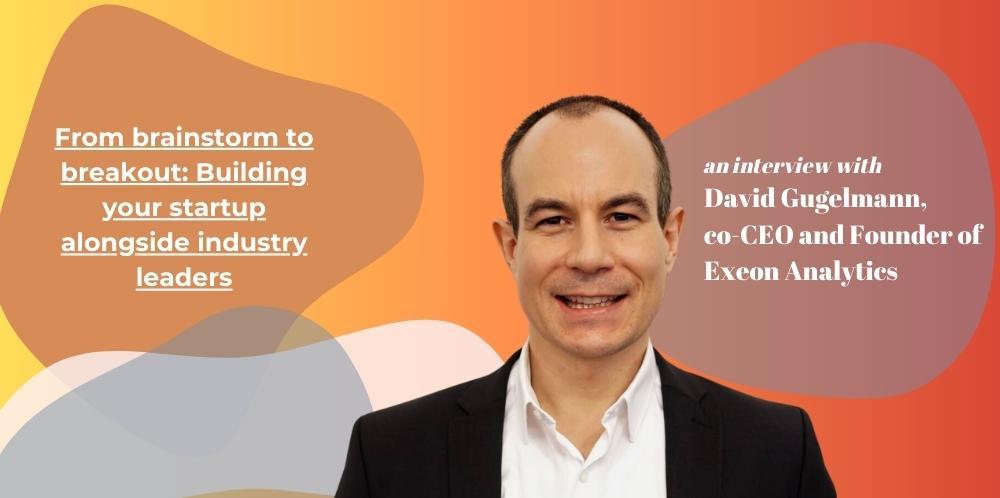
From brainstorm to breakout: Building your startup alongside industry leaders
They say it takes a village to raise a child, but what about a startup? The path from a spark of an idea to a full-fledged business can feel like climbing a mou...
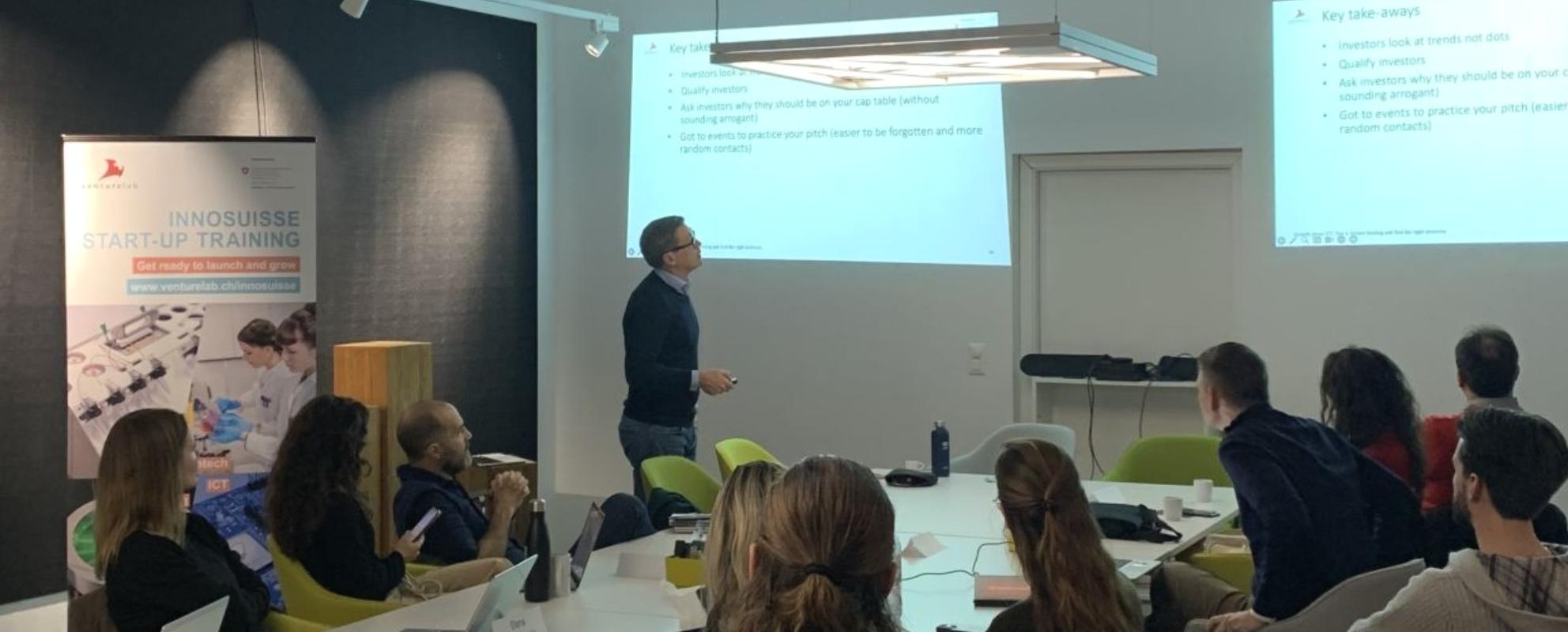
A stirring of entrepreneurial spirit: Switzerland celebrated Global Entrepreneurship Week
Last week was Global Entrepreneurship Week, a global celebration of entrepreneurship aiming to raise awareness for entrepreneurship across the globe. It took pl...
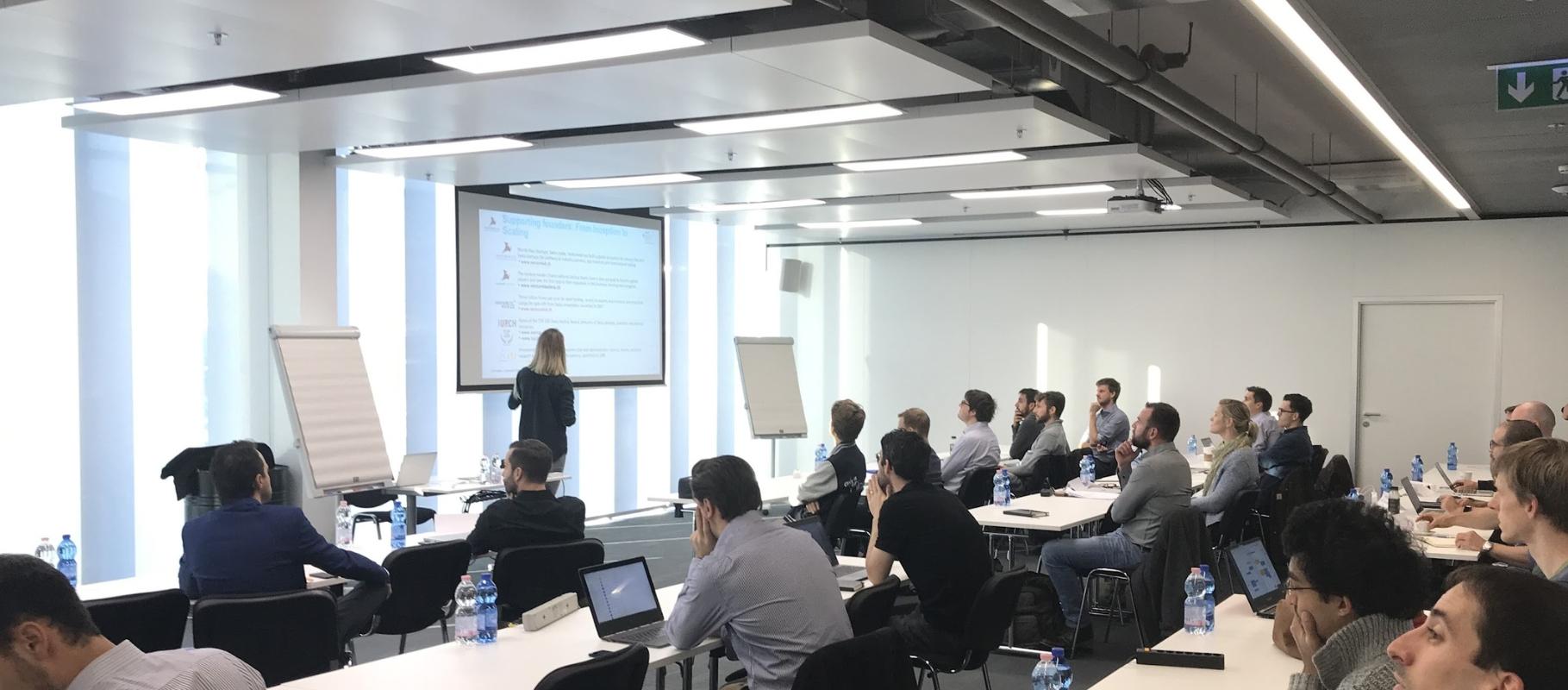
Innosuisse Start-up Training: The successful experience of Tinamu Labs
Innosuisse is the Confederation's innovation agency which promotes science-based innovation in the interests of industry and society in all disciplines. Therefo...
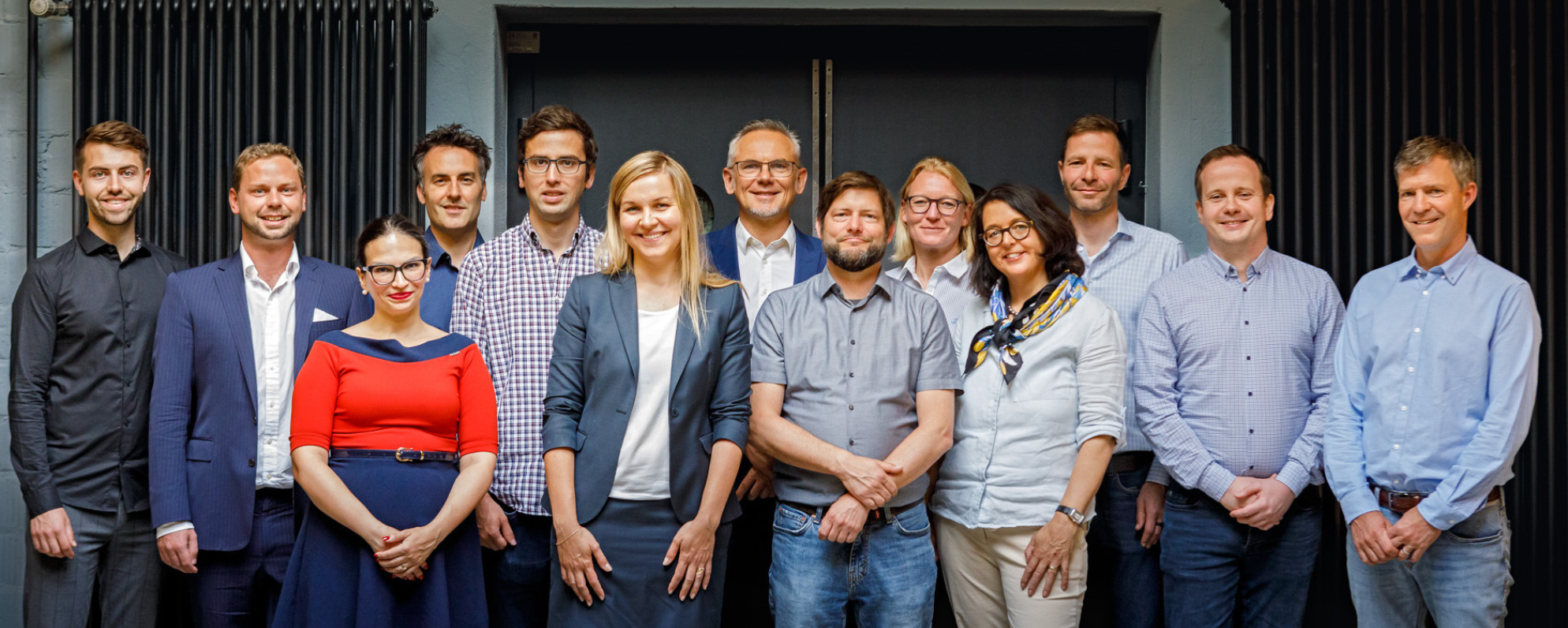
machineMD secures CHF 3.2 million to radically improve early diagnosis of brain disorders
MedTech startup machineMD convinced investors and secured CHF 3.2 million, oversubscribing their seed round by 50%. The main investor is the Guido Fluri Foundat...
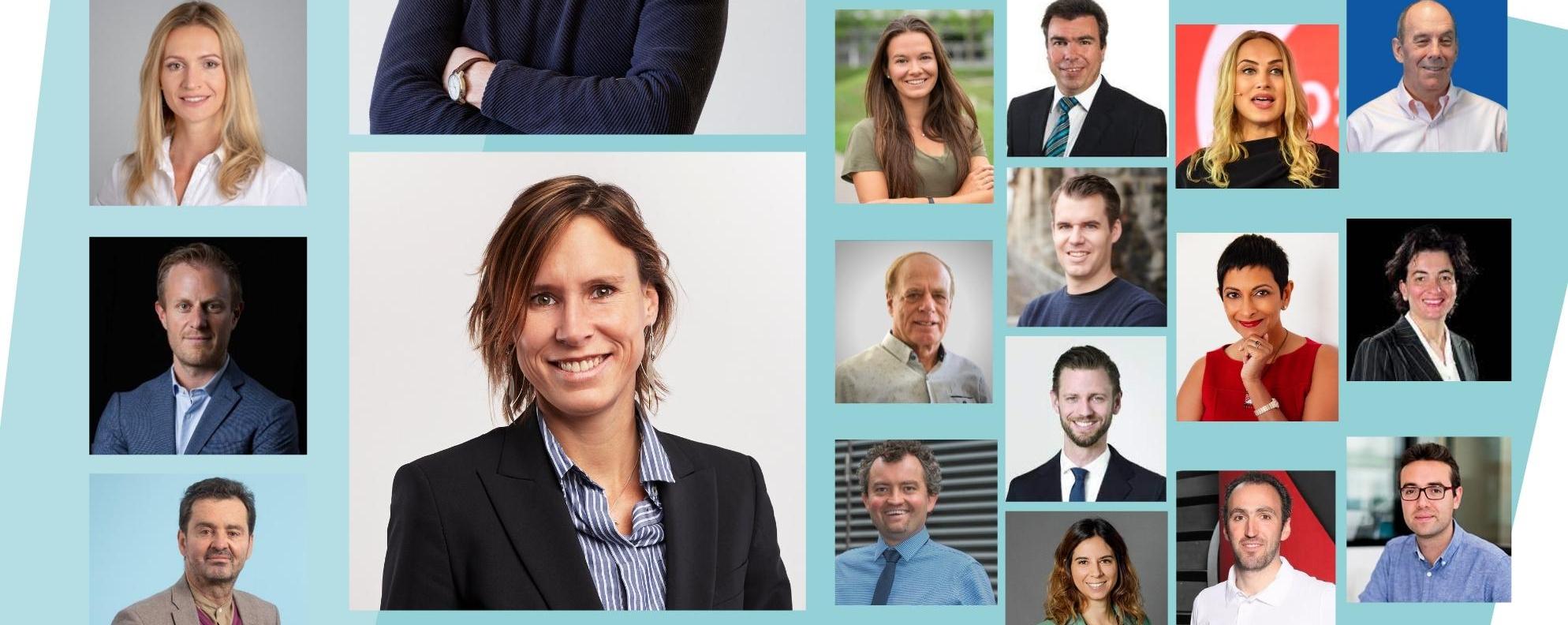
Innosuisse Trainer Caroline Coquerel Kokocinski: ‘Financial literacy is critical for entrepreneurs, so start to develop your competencies as soon as you can’
The Innosuisse Start-up Training in Business Growth and Business Creation equips entrepreneurs with the tools to build world-class start-ups. Around 30 times a ...
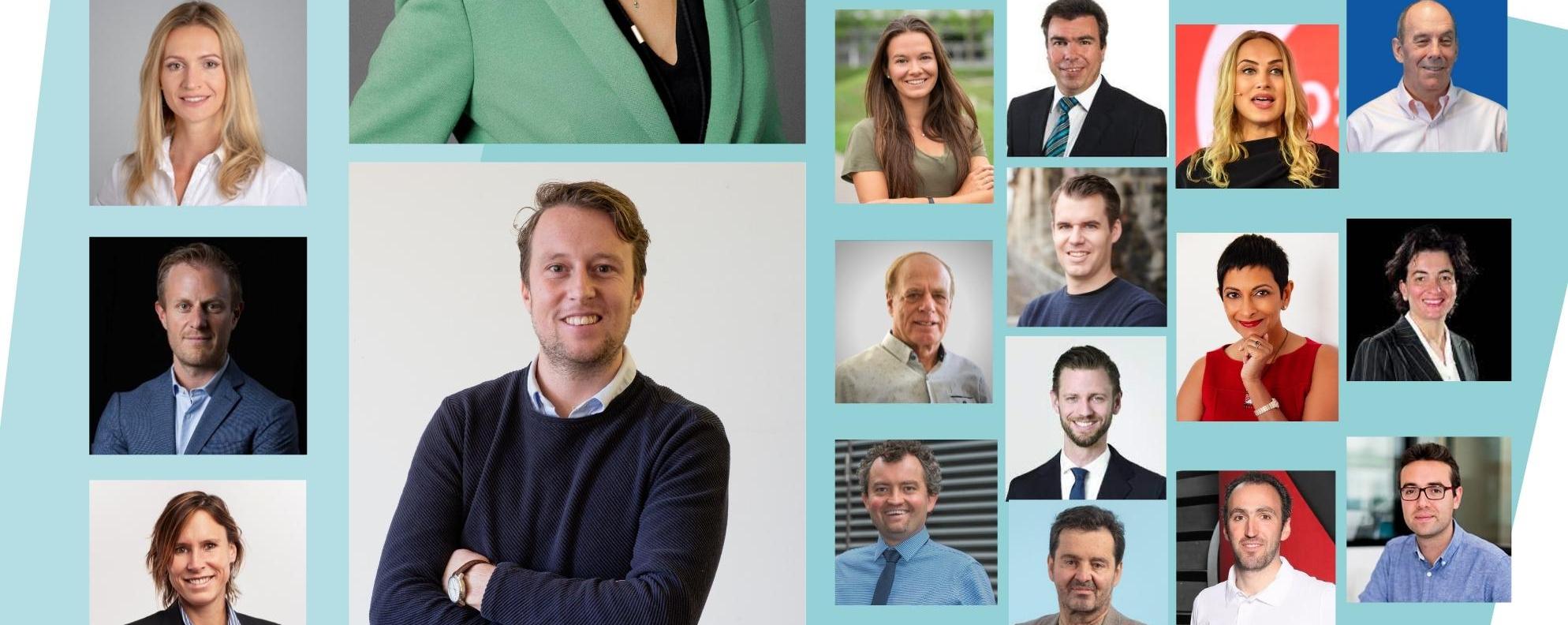
Innosuisse trainer Rutger Verhoef: ‘Seeing the team drive the business forward and enjoy what they do is extremely rewarding’
The Innosuisse Start-up Training in Business Growth and Business Creation equips entrepreneurs with the tools to build world-class start-ups. Around 30 times a ...
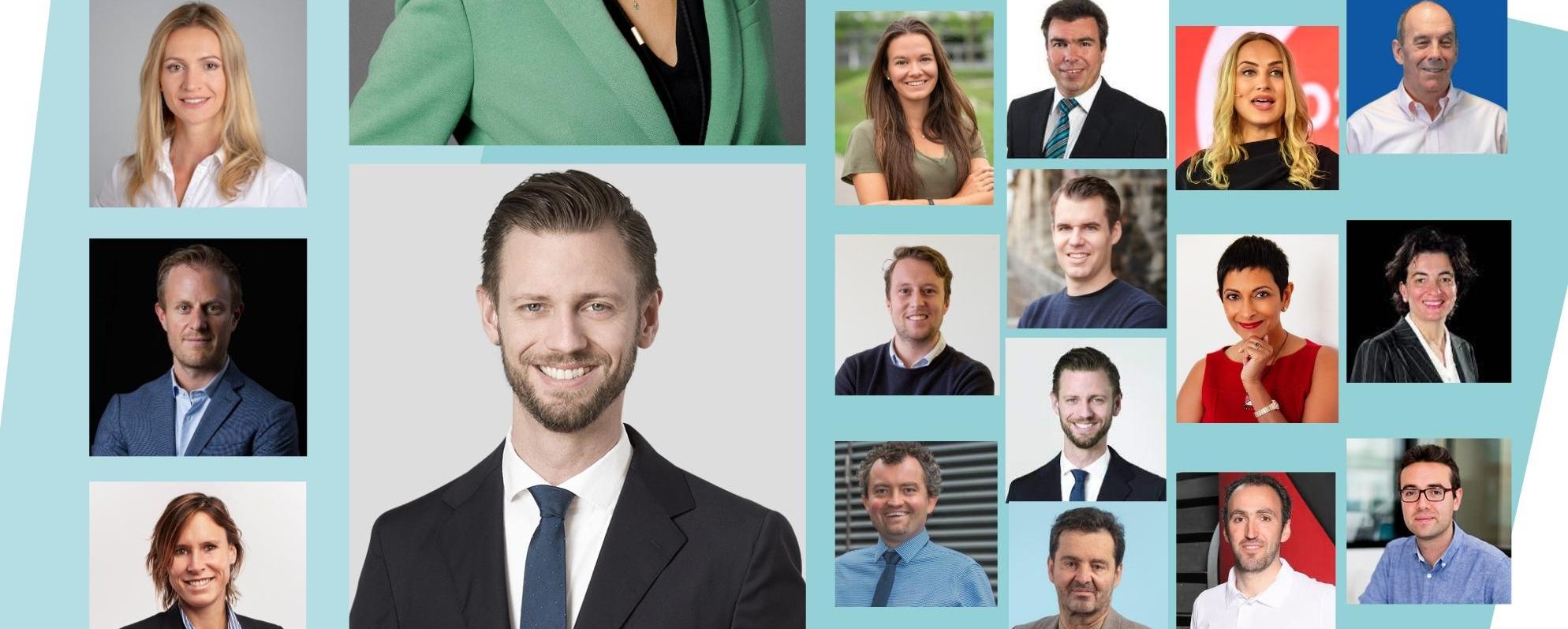
Innosuisse trainer Nicolas Mosimann: ‘Most start-ups fail because of team-related problems, so choose your co-founders wisely!’
The Innosuisse Start-up Training in Business Growth and Business Creation equips entrepreneurs with the tools to build world-class start-ups. Around 30 times a ...
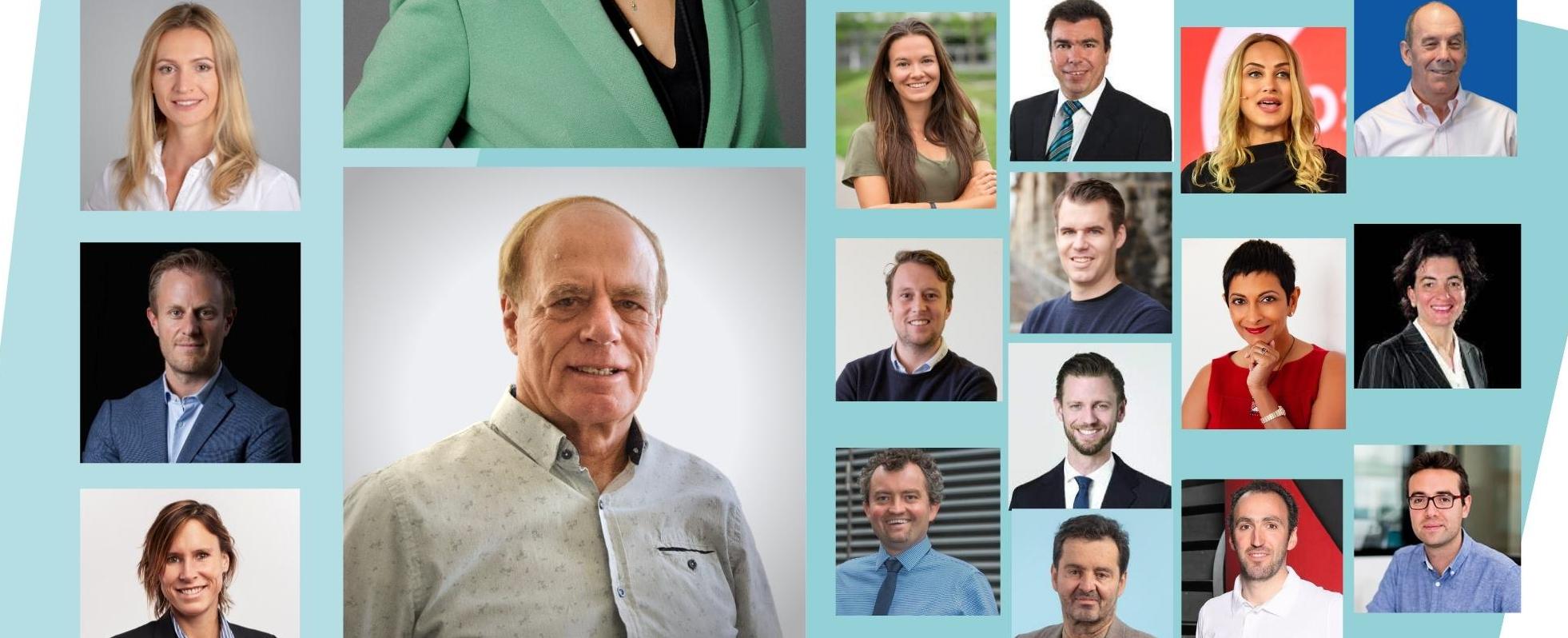
Innosuisse trainer Glenn Stanley: ‘Get the basics right, and the rest will fall into place’
The Innosuisse Start-up Training in Business Growth and Business Creation equips entrepreneurs with the tools to build world-class start-ups. Around 30 times a ...
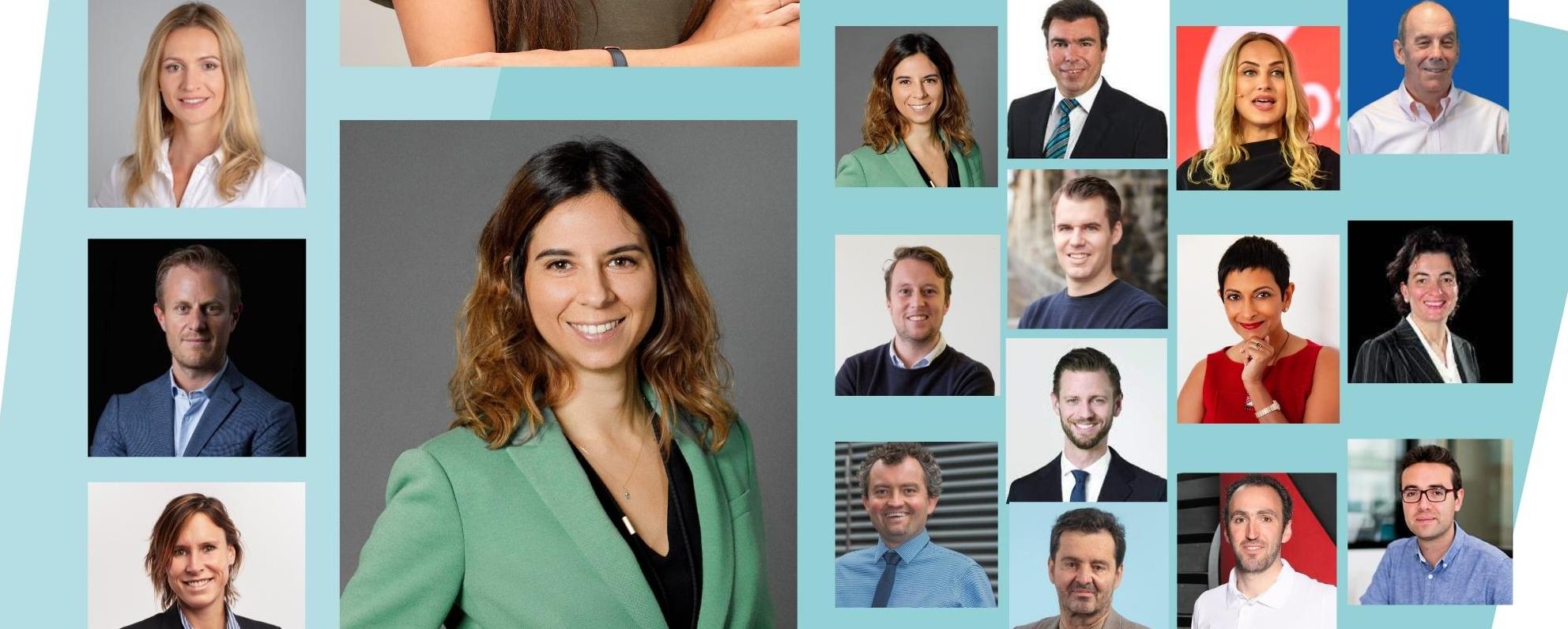
Innosuisse trainer Klea Wenger: ‘Take as much advice from as many people as possible, but then make up your own mind’
The Innosuisse Start-up Training in Business Growth and Business Creation equips entrepreneurs with the tools to build world-class start-ups. Around 30 times a ...
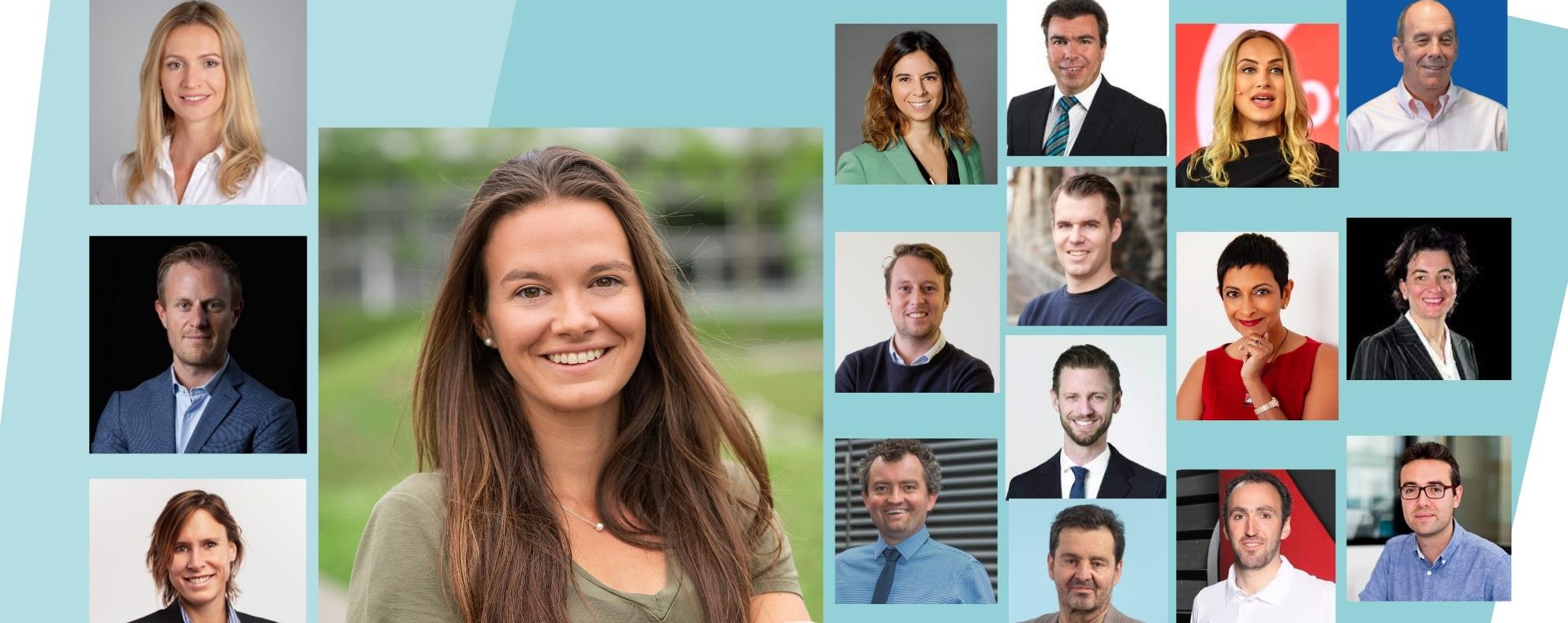
Innosuisse trainer Naomi MacKenzie: ‘You’ll have really high highs and really low lows, so surround yourself with people who believe in you’
The Innosuisse Start-up Training in Business Growth and Business Creation equips entrepreneurs with the tools to build a world-class start-up. Around 30 times a...
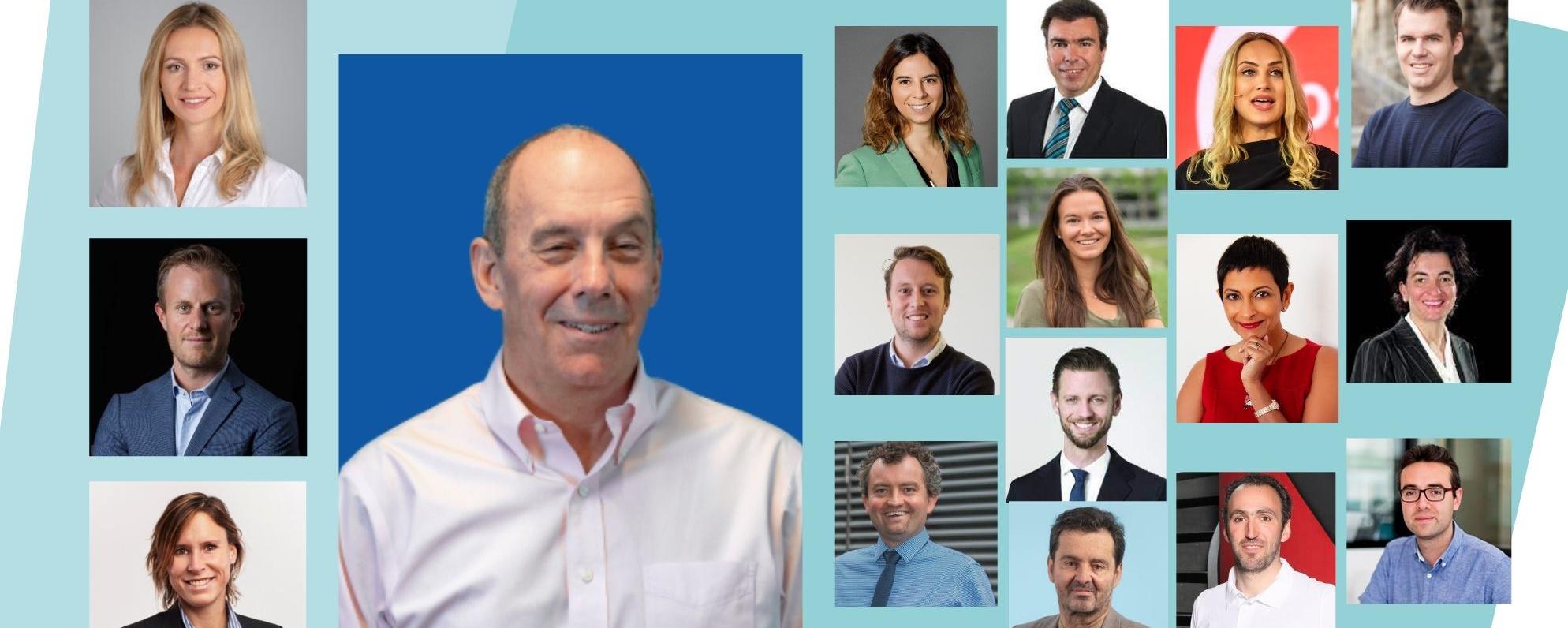
Innosuisse trainer Jim Pulcrano: ‘My hope is that the participants give their start-up every chance possible of success’
The Innosuisse Start-up Training in Business Growth and Business Creation equips entrepreneurs with the tools to build a world-class start-up. Around 30 times a...
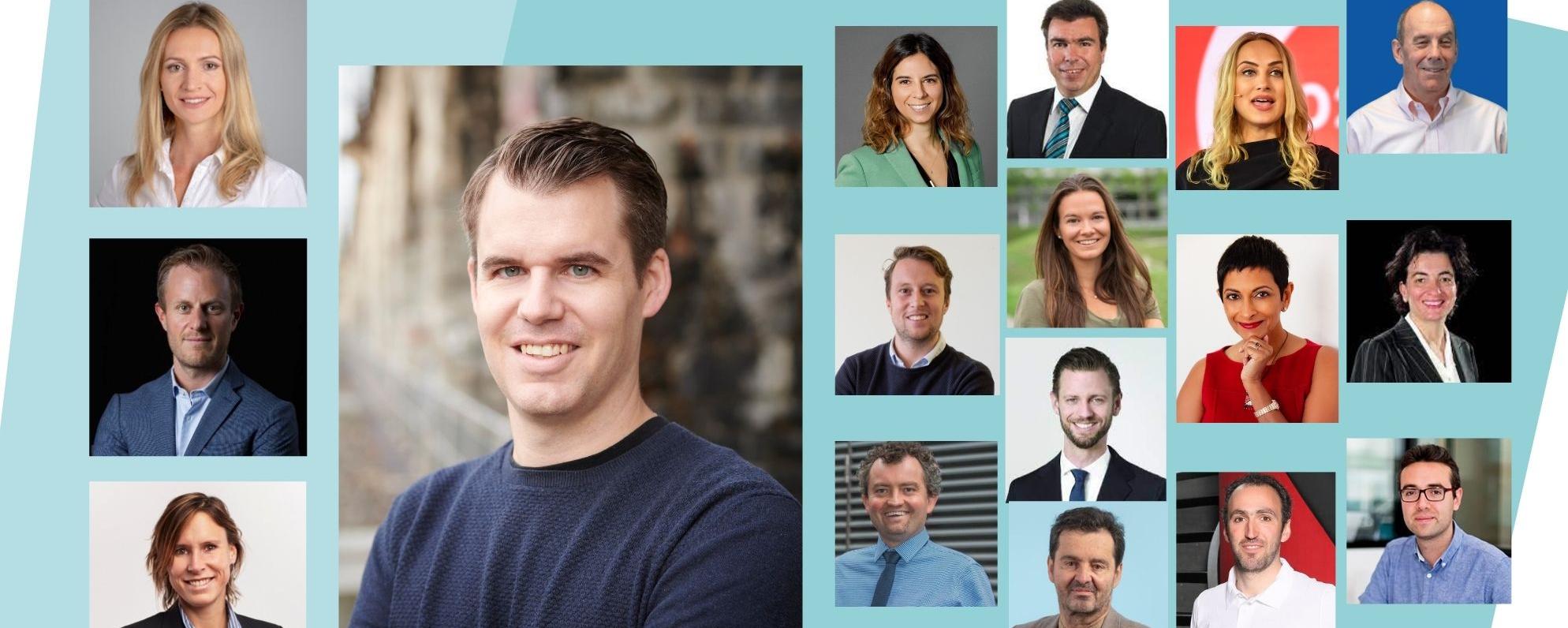
Innosuisse trainer David Hug: ‘Creating a start-up is a marathon, not a sprint—you don’t lose in the first few meters’
The Innosuisse Start-up Training in Business Growth and Business Creation equips entrepreneurs with the tools to build world-class start-ups. Around 30 times a ...
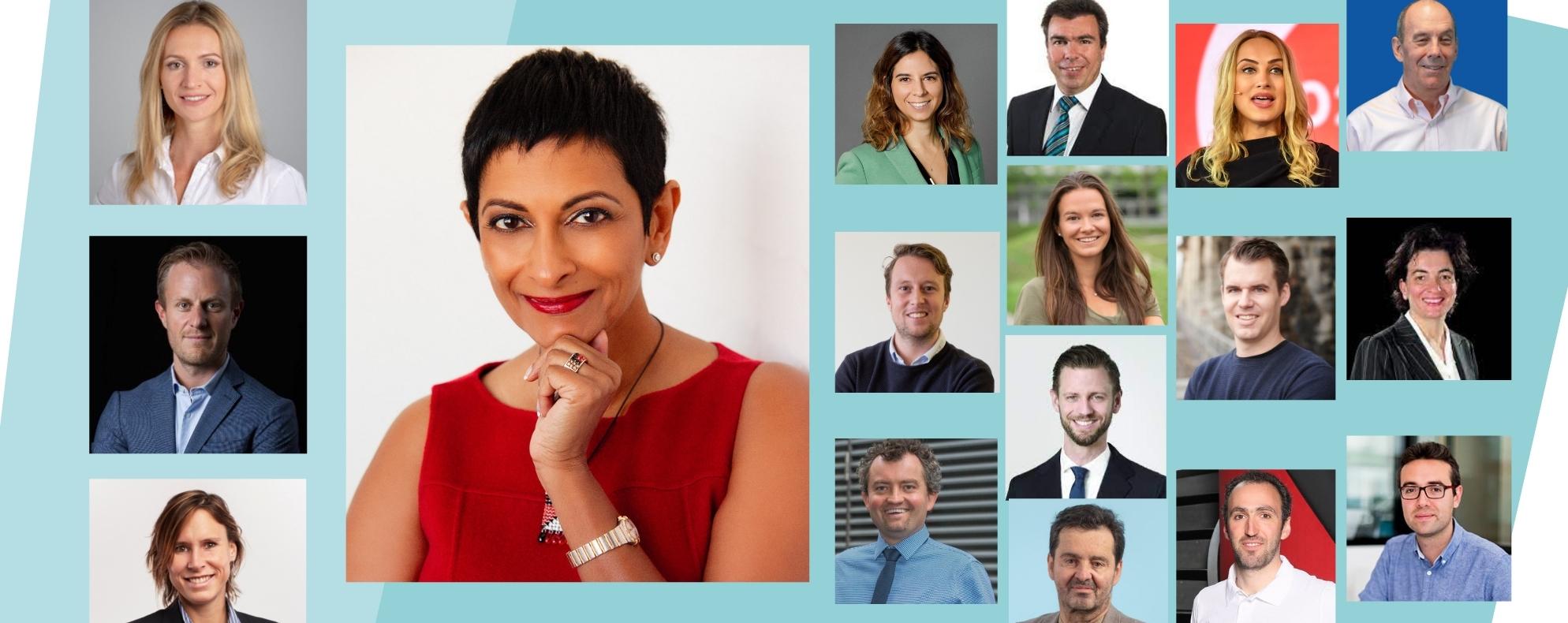
Innosuisse trainer Nanci Govinder: ‘The training fuels my two passions: innovation and entrepreneurship’
The Innosuisse Start-up Training in Business Growth and Business Creation equips entrepreneurs with the tools to build world-class start-ups. Around 30 times a ...
